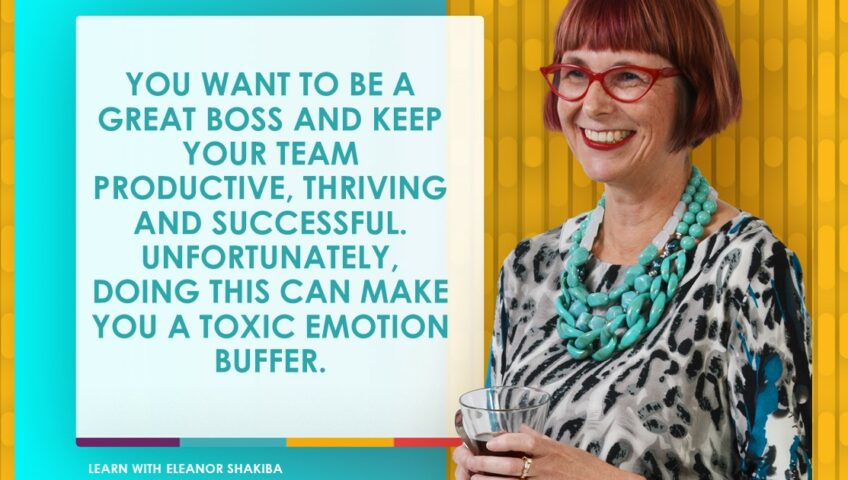You want to be a great boss and keep your team productive, thriving and successful. Unfortunately, doing this can make you a Toxic Emotion Buffer. This is someone who manages the emotionally charged energy of others, handles conflicts and sorts out emotional distress. Toxic Emotion Buffers play a critical role in the success of any team, but the cost to managers who take on this role can be high. After all, even those of us with drama-free teams probably spend hours each week keeping them that way.
Between sorting out conflicts, dealing with strong reactions to feedback and navigating the complex world of stakeholder engagement, a leader’s week is full of complexity. Too often, the consequence of buffering toxic emotions is leader fatigue. Managing emotionally charged energy isn’t easy and it’s not something that comes naturally to everyone. This is why handling stressful situations and strong emotions can take a significant toll on any manager’s motivation, mental stamina and energy.
Indeed, research shows that professionals who act as Toxic Emotion Buffers for longer than six months experience a range of negative consequences themselves. These include physical exhaustion from long hours at work or lack of sleep; mental health issues such as stress and burnout; relationship problems caused by interpersonal conflict and a decrease in motivation or engagement due to having to face difficult situations every day.
Free e-book and video tips.Get your copy today!
|
|
The need for Toxic Emotion Buffering will only increase in today’s turbulent world, so it is imperative that you equip yourself with skills and resources to manage your own emotions and fatigue. Ways to do this include:
- Using positive psychology tools to build your resilience and optimism
- Training your team in conflict resolution, so your people can manage problems themselves
- Working with a coach whenever you need to do a lot of Toxic Emotion Buffering at work
- Building your negotiation and mediation skills
- Debriefing with your peers
- Putting Toxic Emotion Buffering conversations on the agenda of leadership team meetings
If you feel you could benefit from additional training or resources related to Toxic Emotion Buffering, contact me to discuss ways I can help.
This article was created by Eleanor Shakiba
Eleanor is a leadership trainer and success coach. Her mission is inspiring talented people to become leaders who make a difference. Since discovering her passion for training and development, Eleanor has trained more than 60,000 people. She delivers face-to-face workshops for corporates, online masterclasses for leaders and Positive Psychology retreats for trainers, HR practitioners and leaders.

